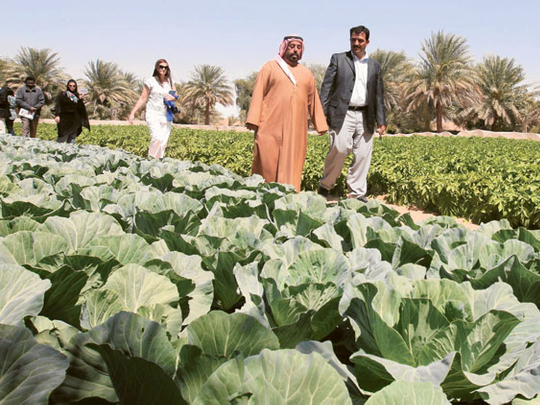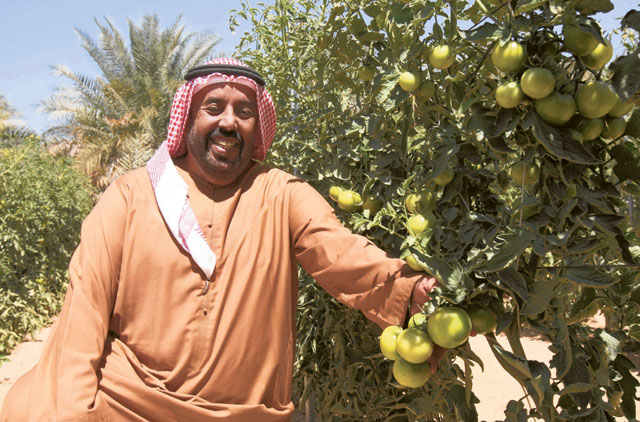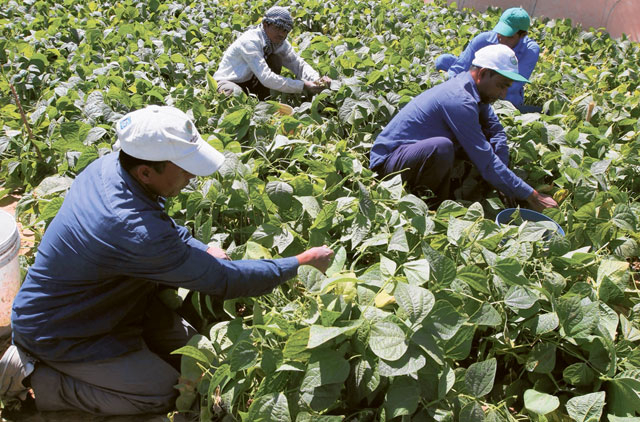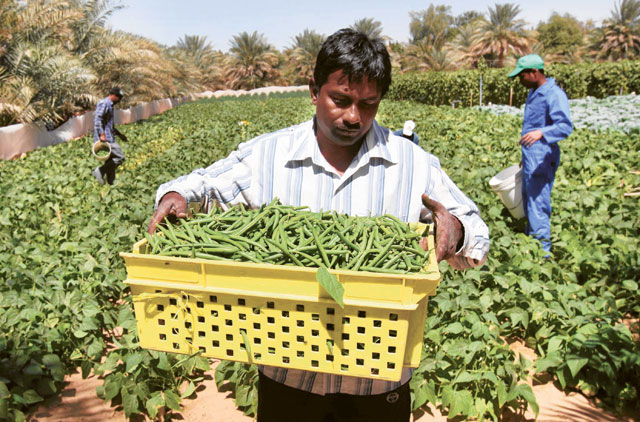
Liwa An Emirati farmer has been happily ploughing back the returns from his farm into new crops ever since he started farming 16 years ago. Mubarak Khalid Al Qubaisi, 55, strongly believes that farming is not just about making a profit but that farmers have a divine obligation to feed present and future generations.
But he is sad that many of his fellow countrymen, especially educated youngsters, do not understand the importance of farming.
The Abu Dhabi Farmers Service Centre (ADFSC), which selected Al Qubaisi's four-hectare farm as a ‘demonstration farm', is determined to change the situation. Al Qubaisi's farm was chosen as an ADFSC model in view of the use of modern farming techniques.
The centre's ongoing efforts to make farming commercially viable as part of its sustainable farming strategy will definitely attract more people, especially youngsters, into farming, said James Thompson, cropping unit head at ADFSC.
The experts spoke to Gulf News during a media trip to Al Qubaisi's farm in Seih Al Khair in Liwa, in the Western Region of Abu Dhabi recently.
Rich variety
The farm grows green beans, potato, tomato, dates, cauliflower, eggplant and many other crops.
Since being established by the Abu Dhabi Government in 2009, the ADFSC has been trying to make farmers self-reliant without having to fall back on subsidies.
When the municipality was handing out subsidies for farming a few years ago, Al Qubaisi recalls earning between Dh200,000 to Dh300,000 per annum.
The earnings have since come down but Al Qubaisi does not mind reinvesting his returns on his farm. "I don't regret it because farming is a divine activity to feed the present and future generations. But most of the Emiratis, especially the educated youngsters including my children, do not understand it," he says.
Most people are more interested in business and trading since they are assured bigger profits than in farming while educated youth focus on highly-paid professional careers only, says Al Qubaisi, who is also the general manager of a private company and runs his own cafeteria business.
He finds time for farming alongside his regular job and business and wonders why others cannot do so.
Making farming sustainable will address all such issues, reckons Thompson.
Healthy produce
Plucking a bean pod from a plant along the walkway on the farm and chewing it without caring to wash it, Thompson said: "These vegetables can be eaten like this."
Ensuring that plants are healthy from the beginning is the first step towards sustainability as it could eliminate use of chemicals, Thompson added. Healthy plants keep the insects and pests away, averting the need to use toxic pesticides or insecticides, he said.
Reaping better returns for little extra
Eco-friendly solutions
- Use of organic fertiliser made by composting manure
- Use of less toxic pesticides and insecticides in place of chemicals.
- Biological control of pests and insects
- Employing water-saving techniques like in-line drip irrigation and water-usage monitoring devices.
Economic viability
- Crops based on market demand
- System for marketing to get good price
Social factor
- Farmers must always take into account the diversity of the UAE community when choosing crops.















